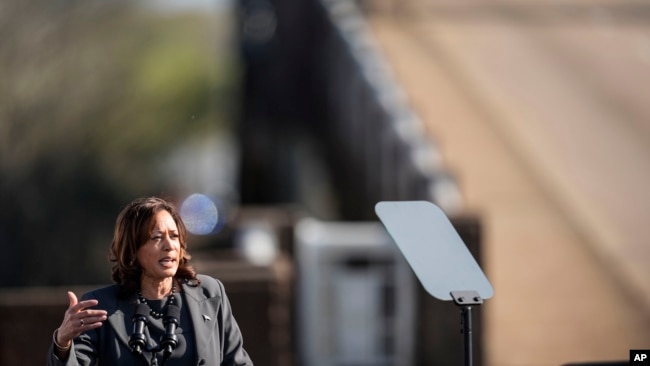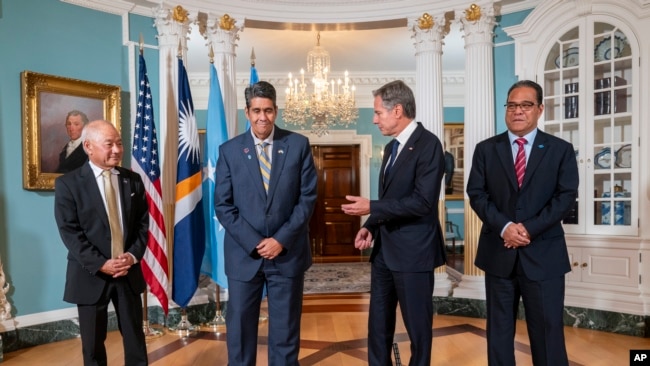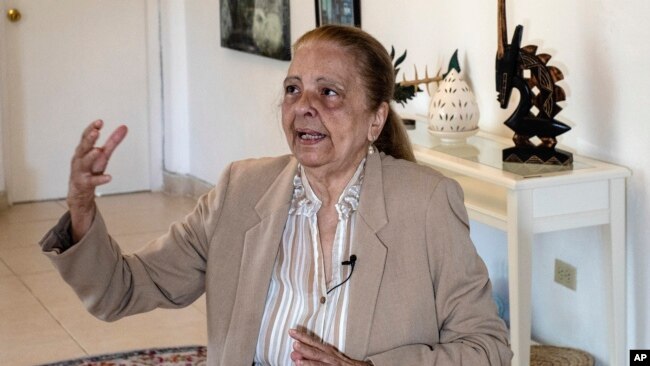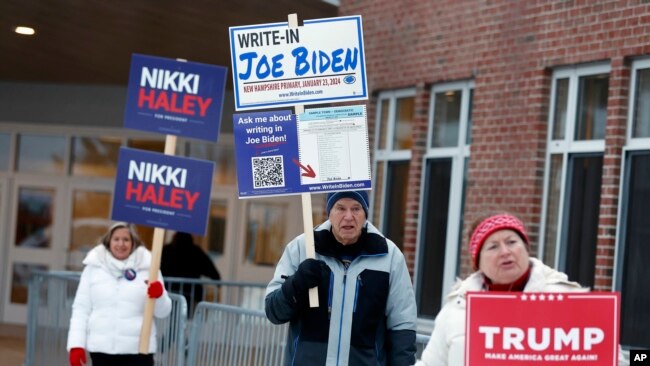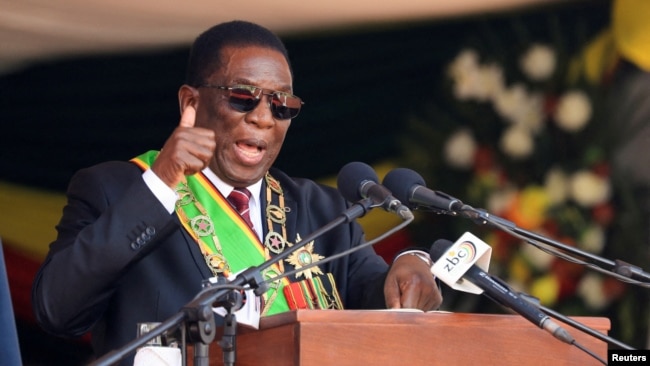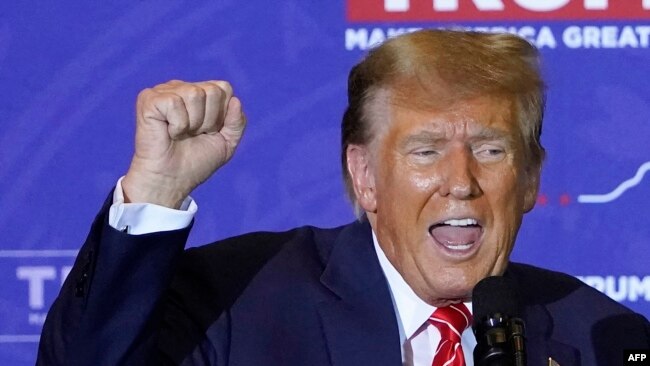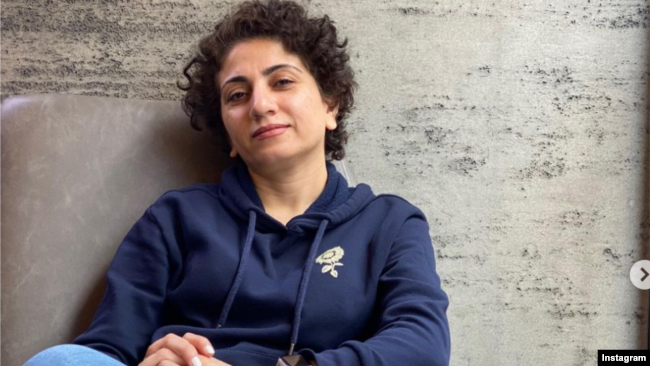중국은 라틴 아메리카에서 '디지털 권위주의'를 지지합니다
China Seen Backing ‘Digital Authoritarianism’ in Latin America
페이지 정보
작성자 Jaime Moreno 작성일 22-01-14 21:39 댓글 0본문
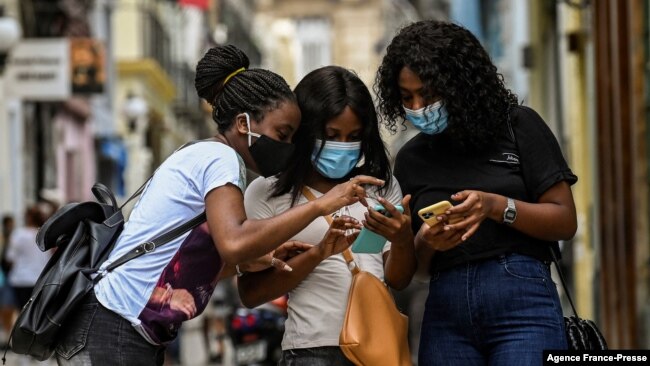
파일 - 7월 하바나의 한 거리에서 여성들이 전화기를 사용합니다.
FILE - Women use their phones in a street in Havana, July 14, 2021.
내부자 계정과 여러 국제 조사에 따르면 중국의 기술과 전문성이 베네수엘라와 쿠바가 두 나라의 디지털 통신에 대해 숨 막히는 통제권을 행사하는 것을 가능하게 하고 있습니다.
Chinese technology and expertise is making it possible for Venezuela and Cuba to exercise suffocating control over digital communications in the two countries, according to insider accounts and several international investigations.
베네수엘라와 쿠바는 중남미 어느 정부보다도 인터넷 접속을 차단하기 위해 노력하고 있다고 미국의 지지 단체인 프리덤 하우스는 2018년부터 이 지역에서 '디지털 권위주의'를 문서화하고 있습니다.
Venezuela and Cuba do more to block internet access than any other governments in Latin America, according to the U.S.-based advocacy group Freedom House, which has documented what it describes as "digital authoritarianism" in the region since 2018.
누구든지가 사생활 베네수엘라에 이메일 통신을 통해 가능해 지어 트위터, WhatsApp, 페이스북과 인스타그램이 틀리다고 믿는.이 모든 tools" 완전히 정부 개입이 적용될 경우 앤서니 Daquin, 컴퓨터 보안 문제로 법무부 베네수엘라의 전 자문 위원이 밝혔습니다.
“Whoever believes that privacy exists in Venezuela through email communications, Twitter, WhatsApp, Facebook and Instagram is wrong. All these tools” are totally subject to government intervention, said Anthony Daquin, former adviser on computer security matters to the Ministry of Justice of Venezuela.
Daquin은 2002년과 2008년 사이에 Hugo Chávez 전 대통령이 중국에 파견한 대표단을 통해 중국이 어떻게 소프트웨어를 사용하여 중국 시민을 식별하고 베네수엘라에서도 유사한 시스템을 구현하는지 배웠습니다.
Daquin participated between 2002 and 2008 in delegations sent by former President Hugo Chávez to China to learn how Beijing uses software to identify Chinese citizens, and to implement a similar system in Venezuela.
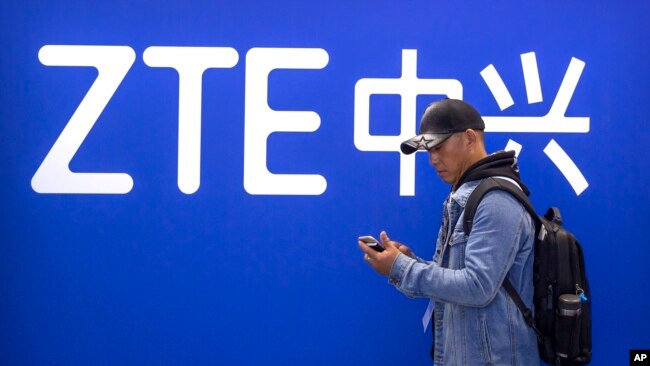
파일 - 한 남자가 10월 베이징에서 열린 PT 엑스포에서 중국 기술 회사 ZTE의 디스플레이 근처에 서서 스마트폰을 보고 있습니다.
FILE - A man looks at his smartphone as he stands near a display for Chinese technology company ZTE at the PT Expo in Beijing on Oct. 31, 2019.
이러한 노력의 핵심은 2016년 중국 ZTE사가 개발한 "카넷 데 라 파트리아" 또는 홈랜드 카드를 도입한 것입니다. 이론적으로는 자발적이지만 의사의 예약에서부터 정부 연금에 이르기까지 광범위한 상품과 서비스에 접근하기 위해서는 카드를 소지해야 합니다.
Key to those efforts was the introduction in 2016 of the “carnet de la patria” or homeland card, developed by the Chinese company ZTE. While theoretically voluntary, possession of the cards is required to access a vast range of goods and services, ranging from doctor’s appointments to government pensions.
이 카드는 공공 서비스와 공급망을 보다 효율적으로 만들기 위한 방법으로 제시되었지만, 비평가들은 이를 "시민 통제"의 한 형태라고 비난했습니다.“
The cards were presented as a way to make public services and supply chains more efficient, but critics denounced them as a form of “citizen control."
다퀸은 최근 몇 년 동안 중국의 역할은 베네수엘라 정부가 대량의 데이터를 처리하고 정부가 국가의 적으로 간주하는 사람들을 감시할 수 있도록 기술 및 기술 지원을 제공하는 것이라고 말했습니다.
Daquin said China's role in recent years has been to provide technology and technical assistance to help the Venezuelan government process large amounts of data and monitor people whom the government considers enemies of the state.
"그들은 텔레비전 카메라 시스템, 지문, 안면 인식, 인터넷용 단어 알고리즘 시스템, 대화 등을 갖추고 있습니다."라고 그가 말했습니다.
"They have television camera systems, fingerprints, facial recognition, word algorithm systems for the internet and conversations,” he said.
다퀸은 베네수엘라 국민들이 정부의 감시로부터 자유로운 전자 통신을 할 수 있는 몇 안 되는 수단 중 하나가 암호화 메시징 플랫폼인 시그널이며, 이 때문에 베네수엘라 정부가 통제하는 데 많은 비용이 든다고 판단했다고 말했습니다.
Daquin said one of the few means that Venezuelans have to communicate electronically free from government monitoring is the encrypted messaging platform Signal, which the government has found it very costly to control.
前 보좌관은 베네수엘라의 디지털 감시 구조가 5개의 링으로 나뉘는데, "5번 링은 가장 신뢰할 수 있고 100% 중국 인력이 감독하고 있다"고 말했습니다.
The former adviser said Venezuela’s digital surveillance structure is divided into five “rings,” with "Ring 5 being the most trusted, 100 percent Chinese personnel supervising.”
Daquin에 따르면, 정부는 언론 검열, 인터넷 차단 및 임의 체포에 관한 결정의 기초가 되는 모니터로부터 매일 보고를 받고 있습니다.
According to Daquin, the government receives daily reports from the monitors that become the basis for decisions on media censorship, internet shutdowns and arbitrary arrests.
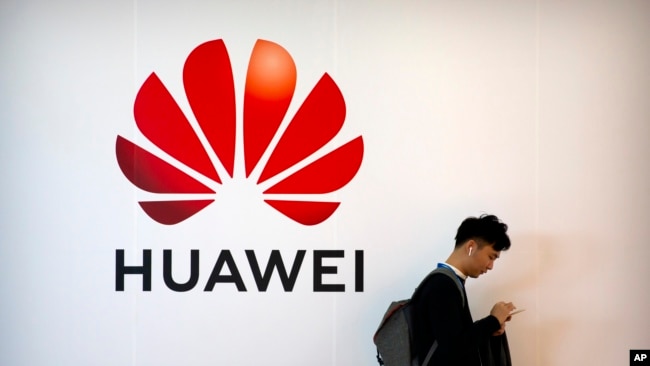
파일 - 2019년 10월 31일 사진에서 한 남자가 베이징에서 열린 PT 엑스포에서 중국 기술 회사 화웨이의 광고판 근처에 서서 스마트폰을 사용하고 있습니다.
FILE - In this Oct. 31, 2019, photo, a man uses his smartphone as he stands near a billboard for Chinese technology firm Huawei at the PT Expo in Beijing.
중국 회사들에 대한 미국의 고발입니다.
US accusations against Chinese companies
ZTE, Huawei, 중국 전자 수출입공사(CEIEC) 등 여러 중국 기술 기업이 베네수엘라에서 활동하고 있습니다. 후자는 2020년 미 재무부에서 니콜라스 마두로 대통령 정부를 '인터넷 서비스를 제한'하고 '정적 반대파에 대한 디지털 감시 및 사이버 작전을 수행한다'는 이유로 제재를 받았습니다.
Several Chinese technology companies are active in Venezuela, including ZTE, Huawei and the China National Electronics Import & Export Corp. (CEIEC). The latter was sanctioned in 2020 by the U.S. Treasury Department on the grounds that its work in Venezuela had helped the government of President Nicolas Maduro "restrict internet service" and "conduct digital surveillance and cyber operations against political opponents."
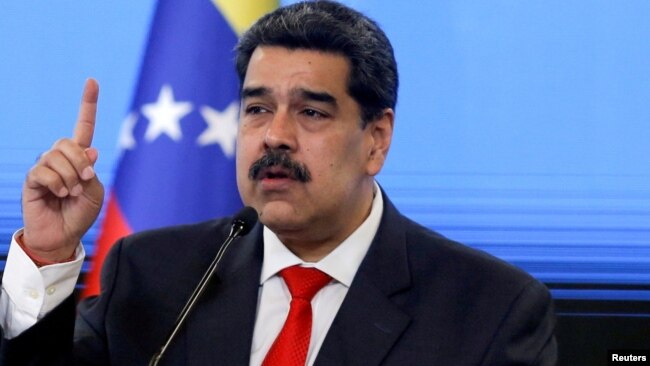
파일 - 니콜라스 마두로 베네수엘라 대통령이 12월 카라카스에서 가진 기자회견에서 말했습니다.
FILE - Venezuelan President Nicolas Maduro speaks during a news conference in Caracas, Dec. 8, 2020.
미국 상원 외교위원회도 2020년에 경보를 발령했습니다. 빅 브라더, 차이나 디지털 권위주의 보고서에서 중국 통신사들이 전 세계에서 '디지털 권위주의'를 조장하고 있다고 비난하고 베네수엘라를 사례 연구 대상으로 꼽았습니다.
The U.S. Senate Foreign Relations Committee also issued an alert in 2020. In a report, Big Brother, China Digital Authoritarianism, it accused Chinese telecommunications companies of facilitating "digital authoritarianism” around the world and cited Venezuela as a case study.
구체적으로, 위원회는 국가 통신 회사 CANTV의 시설 내에서 근무하는 ZTE 직원들로 구성된 팀이 존재한다고 언급하고 있습니다. CANTV는 국토 카드 데이터베이스를 관리합니다.
Specifically, the committee mentions the existence of a team of ZTE employees working within the facilities of the state telecommunications company CANTV, which manages the homeland card database.
이 문서는 로이터 통신의 조사를 인용하고 있으며, CANTV 직원들은 카드 시스템을 통해 "생일, 가족 정보, 고용 및 소득, 소유 재산, 의료 병력, 받은 국가 혜택, 사회 의료 혜택, 존재 여부 등 개인에 대한 광범위한 정보를 모니터링할 수 있다고 말했습니다.ia, 정당의 당원 자격과 투표 여부입니다.
The document cites an investigation by the Reuters news agency, which reported it was told by CANTV employees that the card system allows them to monitor a vast range of information about individuals, including "birthdays, family information, employment and income, property owned, medical history, state benefits received, presence on social media, membership of a political party and whether a person voted."
"마두로는 베네수엘라 시민들을 통제하기 위해 중국의 하드웨어와 서비스를 최대한 활용하고 있습니다."라고 이 보고서는 밝히고 있습니다.
"Maduro takes full advantage of Chinese hardware and services in his effort to control Venezuelan citizens," the report says.
정교하고 간단한 인터넷 차단입니다.
Sophisticated and simple internet blockades
인터넷 공개 개발을 옹호하는 미국의 비영리 단체인 인터넷 소사이어티의 루이스 카를로스 디아스 베네수엘라 지부 회장에 따르면, 국내 반대파들의 인터넷 접속을 차단하려는 마두로 정부의 노력은 "매우 조잡하다"고 합니다.
The Maduro government’s efforts to block access to the internet by domestic opponents are “very crude," according to Luis Carlos Díaz, president of the Venezuelan chapter of the Internet Society, a U.S.-based nonprofit that advocates for open development of the internet.
웹사이트나 소셜미디어가 잠시 차단되려면 공무원이 웹 포털 운영자에게 전화 한 통이면 된다고 말했습니다.
He said it takes nothing more than a phone call from a government official to the operator of a web portal to have a website or social media outlet blocked for a time.
그러나 2019년에 베네수엘라는 인터넷 사용자들이 익명으로 남아 검열을 우회할 수 있도록 세계적으로 사용되는 가장 정교한 시스템 중 하나인 The Awon Router(TOR)를 차단했습니다. 플랫폼은 메시지 출처를 식별할 수 없도록 전세계 서버 네트워크를 통해 메시지를 전달합니다.
However, in 2019, Venezuela blocked The Onion Router, or TOR, one of the most sophisticated systems used globally to allow internet users to remain anonymous and bypass censorship. The platform directs messages through a worldwide network of servers so the origin of a message cannot be identified.
디아즈는 베네수엘라의 다른 반복적인 차단과는 달리 TOR 해킹은 더 높은 수준의 지식을 필요로 한다고 말했습니다.
Diaz said that, unlike other recurrent blockades in Venezuela, the TOR hack did require a higher level of knowledge.
"지나치게 심각했기 때문에 경보를 발령했습니다."라고 그는 VOA에 말했습니다. "베네수엘라 정부가 중국에서 사용되는 것과 같은 기술을 사용하여 검열을 회피하는 도구인 TOR을 가지고 있는 사용자를 차단하고 있다는 것을 의미했습니다."
"There, we raised alerts because it was excessively serious,” he told VOA. “It meant that the Venezuelan government was using technology like the one used in China to block users who had TOR, a tool used to circumvent censorship."
TOR 봉쇄는 일주일 동안 지속되었는데 디아스는 베네수엘라 정부가 그런 복잡한 작전에 필요한 고도로 훈련된 인력이 부족하기 때문에 스스로 한 것이 아니라고 말했습니다.
The TOR blockade lasted a week, and Díaz said he doubts that the Venezuelan government did it by itself, because it lacks the highly trained people needed for such a complex operation.
쿠바에서 중국의 역할입니다.
China’s role in Cuba
쿠바의 인터넷 인프라도 중국 회사로부터 인수한 장비로 구축되었습니다. 스웨덴 단체 쿠륨은 2020년 초 발간된 보고서에서 쿠바 인터넷에서 화웨이 eSight 네트워크 관리 소프트웨어를 탐지했다고 밝혔습니다. 이 조직에 따르면 이 소프트웨어의 목적은 웹 검색을 필터링하는 데 도움이 됩니다.
The internet infrastructure in Cuba was also built with equipment acquired from Chinese companies. The Swedish organization Qurium, in a report published at the beginning of 2020, said it had detected Huawei eSight network management software on the Cuban internet. The purpose of the software is to help filter web searches, according to this organization.
쿠바 반체제 인사들은 쿠바 정부가 검열하는 페이지에 접속하는 유일한 방법은 가상 사설 네트워크나 VPN을 통해서라고 주장합니다.
Cuban dissidents say the only way to access pages censored by the government on the island is through a virtual private network or VPN, which tricks the system into believing that the user is in another country.
웹 콘텐츠를 PDF 형식이나 뉴스레터로 변환하여 인터넷에 콘텐츠를 업로드하는 것이 차단된 독립 디지털 뉴스 매체 14yMedio의 사용자에게 이메일로 보내는 저널리스트 루즈 에스코바는 "통제된 웹 사이트에 들어갈 수 있는 유일한 방법"이라고 말했습니다. 그러나 쿠바에서는 "소수의 사람들이 이 기술을 마스터합니다"라고 그녀는 말했습니다.
This "is the only way to enter any controlled website," said journalist Luz Escobar, who converts web content into PDF format or newsletters and sends those by email to users of 14yMedio, an independent digital news outlet that is blocked from uploading its content to the internet. In Cuba, however, “few people master this technique," she said.
쿠바의 인터넷 검열은 2017년 전 세계의 인터넷 검열을 모니터링하는 자원봉사 기반 단체인 OONI(Open Observatory of Network Interference)가 조사했습니다. 이 단체는 한 중국 회사가 "중국어로 소스 코드에 댓글을 남겼기" 때문에 이 섬의 공공 와이파이 포털용 소프트웨어를 개발했다는 것을 결정할 수 있었다고 말했습니다.
Internet censorship in Cuba was investigated in 2017 by the Open Observatory of Network Interference (OONI), a volunteer-based organization that monitors internet censorship around the world. The group said it was able to determine that a Chinese company had developed software for public Wi-Fi portals on the island "because they left comments in the source code in Chinese.”
쿠바를 여행하고 정부가 제공하는 다양한 Wi-Fi 연결 지점을 테스트한 경험이 있는 OONI의 프로젝트 리더 아르투로 파일라스토는 "화웨이 장비도 폭넓게 사용되고 있습니다."라고 말했습니다.
"We also found a wide use of Huawei equipment," said Arturo Filastó, a project leader at OONI who had traveled to Cuba and tested various Wi-Fi connection points provided by the government.
미국의 소리(VOA) 방송은 문제의 3개 정부 기관(쿠바, 베네수엘라, 중국)에 의견을 요청했지만, 발표 전에 이들 중 어느 곳에서도 답변을 받지 못했습니다.
Voice of America asked for comments from the three government entities in question — Cuba, Venezuela and China — but did not receive responses from any of them before publication.
중국은 "권위주의적 경향"을 가진 국가들을 계속 지도하고 있습니다.
China continues to tutor countries with an "authoritarian tendency"
프리덤하우스는 2021년 인터넷 검열 보고서에서 베네수엘라 관리들이 사우디아라비아, 시리아 등 36개국 대표들과 함께 중국 정부 훈련과 뉴미디어 및 정보관리 세미나에 참여했다고 밝혔습니다.
In a 2021 report on internet censorship, Freedom House said Venezuelan officials, along with representatives from 36 other countries including Saudi Arabia and Syria, participated in Chinese government training and seminars on new media and information management.
중국은 2017년 세계 인터넷 회의와 같은 포럼을 조직하여 "권위주의 성향의 정부에 규범을 부여하고 있다"고 보고서는 결론을 내렸습니다.
China has organized forums such as the World Internet Conference in 2017 "where it imparts its norms to authoritarian-leaning governments," the report concluded.
Atlantic Council의 Cyber Statecraft Initiative의 정보보안 전문가 저스틴 셔먼은 VOA에 화웨이와 ZTE와 같은 중국 기업들이 "정부, 정보기관 및 경찰 기관에 대한 인터넷 검열 프로그램을 만드는 데 베네수엘라가 아닌 전 세계에 관여했다"고 말했습니다.
Justin Sherman, an information security expert at the Atlantic Council's Cyber Statecraft Initiative, told VOA that Chinese companies like Huawei and ZTE have "been involved all over the world, not just in Venezuela, in creating programs of internet censorship surveillance for governments, intelligence services and police agencies.”
셔먼은 중국 기업들 독재 정부에 이익을 목적으로 그들의 감시 기술을 파는 명백하지 않다고 말했다.는 2020년 상원 관계 위원회 보고서의 논문이 중국에 대한 관심은 기술 서비스의 판매“세계에서 디지털 권위주의.”의 정책을 연장하는 것 나간다.
Sherman said it is not clear whether Chinese companies sell their surveillance technology to authoritarian governments solely for profit. The thesis of the 2020 Senate Relations Committee report is that there is an interest in China to go beyond the sale of its technology services to extend its policy of "digital authoritarianism in the world.”
이 기사는 VOA의 라틴 아메리카 지부에서 비롯되었습니다.
This article originated in VOA’s Latin America Division.
출처 : VOANews
댓글목록 0
등록된 댓글이 없습니다.


